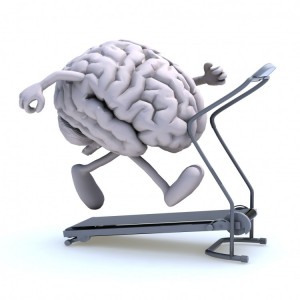 For older adults, increasing the number of calories they burn each week during exercise can improve brain volume and lessen the risk of developing Alzheimer’s disease, according to a new study.
For older adults, increasing the number of calories they burn each week during exercise can improve brain volume and lessen the risk of developing Alzheimer’s disease, according to a new study.
Previous studies have already suggested that physical activity can have cognitive benefits, but uncovering that energy expenditure plays a critical role in inducing brain changes “adds substantial value to existing epidemiologic studies that address the role increased physical activity has in delaying the clinical manifestation of Alzheimer’s disease,” researchers wrote.
Calorie Burning and Alzheimer’s Risk
For their study, researchers studied a group of nearly 900 adults over the age of 65 for a period of five years. Participants underwent periodic cognitive assessments and MRIs to measure brain volume throughout the study. The participants also provided information on their everyday physical activities, like walking, tennis, dancing and golfing to gauge their weekly energy output. After comparing energy expenditure, researchers uncovered that individuals who burned the most calories showed more brain volume growth and were less likely to have developed Alzheimer’s disease.
“The highest quartile group of physical activity (500 calories from leisure physical activities) had larger gray matter volumes and reduced atrophy in Alzheimer’s dementia than the lowest quartile (only 50 calories from physical activity),” said lead researcher Dr. Cyrus Raji.
Researchers noted that the study adds to previous literature on exercise and the brain “by linking increased gray matter with a twofold risk reduction of Alzheimer’s dementia five years after the time of the magnetic resonance imaging scan.”
They concluded:
“Studies such as this one suggest that simply caloric expenditure, regardless of type or duration of exercise, may alone moderate neurodegeneration and even increase gray matter volume in structures of the brain central to cognitive functioning. Future studies examining the preservation of brain matter as a function of physical activity will help elucidate whether the association between caloric expenditure and gray matter volume is a direct or indirect relationship. Such knowledge can give individuals the tools to better impact their brain health throughout the aging process.”
Dr. Silverman Comments
It’s important to get regular exercise at any age, but this study shows just how important it is to continue to burn calories into your golden years. Part of staying cognitively fit involves staying physically fit, and this research helps prove that notion.
Any doctor hoping to help improve their patient’s cognitive function should prescribe a healthy dose of daily activity.